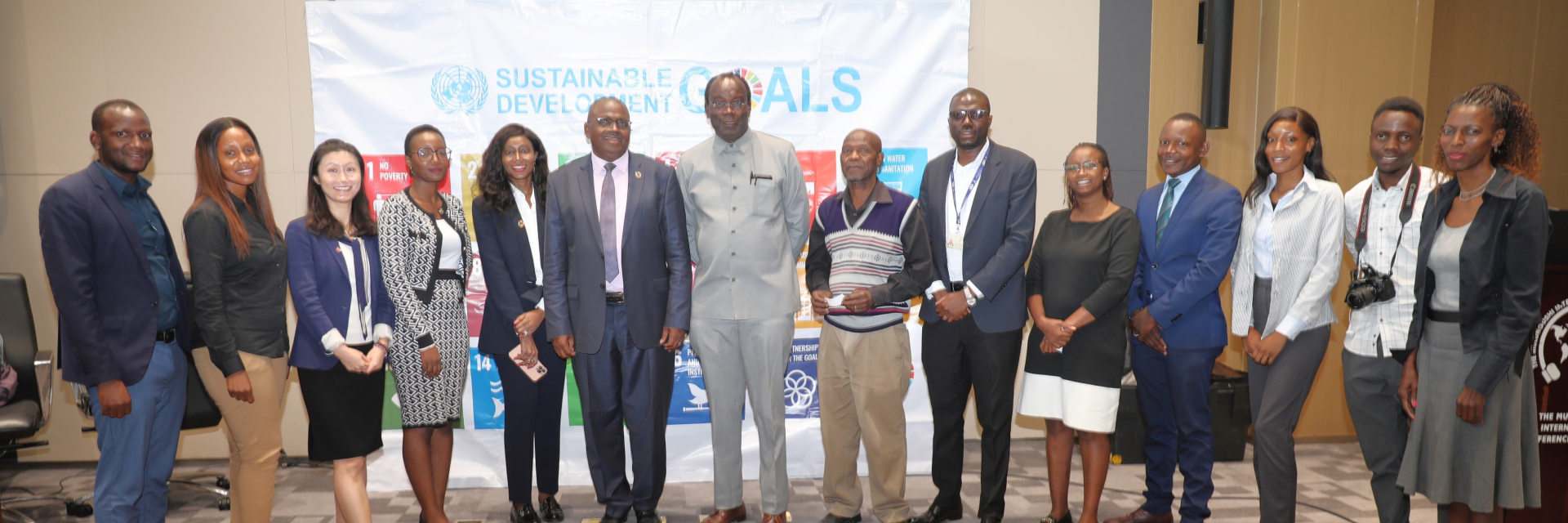Lusaka, Zambia, 14 December 2023 (ECA) - Over the past few decades, economic performance in Africa has been shaped by shocks of varying magnitude, duration, and recurrence. The polycrises that include the climate change induced shocks, the repercussions of the COVID-19 pandemic, and the ripple effects of the Russian invasion of Ukraine have caused Africa to regress or stagnate on the SDGs targets. More than 30 million Africans were forced into extreme destitution in 2021, and 22 million jobs were lost. The ongoing war in the Ukraine prolongs uncertainty and fears of food insecurity in Africa and internal conflicts and risks have left several African countries more vulnerable and less resilient to manage current and future shocks. This is according to the Economic Report on Africa 2023 (ERA2023) which was launched on 14 December 2023 at the Mulungushi International Conference Center in Lusaka, Zambia.
Titled: “Building Africa’s Resilience to Global Economic Shocks”, the report shows that multiple shocks have also had scarring effects that make it difficult for African economies to recover fully even after a short-lived shock. More important, their damage could morph into other domains such as political instability and conflict, thus undermining recovery and the resilience to future shocks.
The report calls for new approaches for African countries to address challenges of global economic shocks. This includes improving risk management and building resilience strategies through well-designed national development plans and good governance, as well as structural transformation through equitable green growth and smart industrial strategies. Forging a new global cooperation framework and acceleration of the African Continental Free Trade Area (AfCFTA) could enhance collaboration and integration among African countries, enabling risk pooling and management.
“We need to develop robust resource mobilization strategies to finance sustainable development. These strategies include strengthening the tax system, stemming illicit financial flows, establishing verifiable measures to improve debt management, diversifying financial instruments to finance long-term investment and reforming the global financial architecture to ensure a more equitable and representative international system. The continent also needs to implement pandemic prevention and early warning systems to face future shocks and build resilience”, concluded Ms. Sidzanbnoma Nadia Ouedraogo, Economic Affairs Officer, Macroeconomic Analysis Section, Macroeconomics and Governance Division (MGD), Economic Commission for Africa
In the particular case of the host country Zambia, Mr. Oliver Maponga, Economic Affairs Officer and Officer-in-Charge, Subregional office for Southern Africa, UNECA, in his opening remarks, noted that: “In order to build resilience to shocks to prevent dire situations, Zambia needs to enhance fiscal consolidation and adopt prudential monetary policy, enhance agriculture and climate resilience, strengthen efforts in debt restructuring, as well as enlarge fiscal revenues and foreign exchange earrings from mineral exports.” In addition, Dr. Herrick Mpuku, Executive Director, Zambia Institute for Policy analysis and Research (ZIPAR) added that: " We need to review the structure of our pricing, the right pricing strategy for our natural resources will allow us to generate adequate income while also being maximize value creation."
For more information on ERA 2023, please contact Ms. Sidzanbnoma Nadia Ouedraogo, MGD, ECA at nadia.ouedraogo.org and Ms. Chaoyi Hu, MGD, ECA at chaoyi.hu@un.org.

